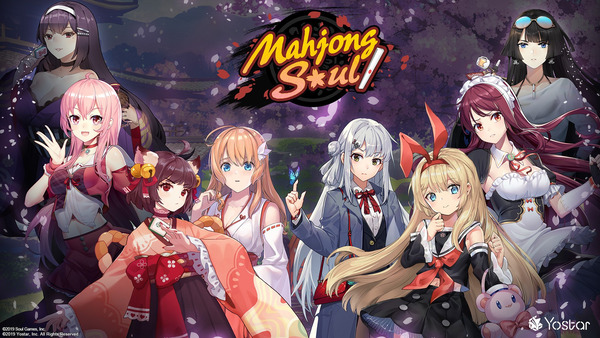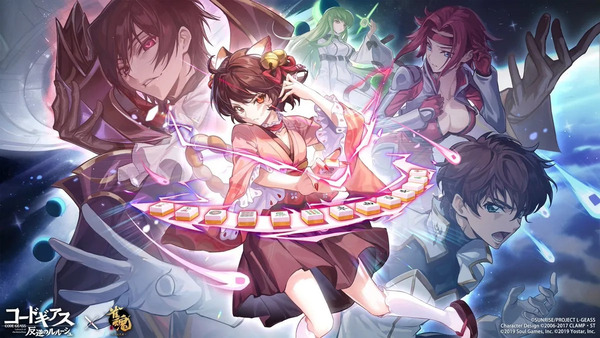Mahjong Soul is more than just a traditional mahjong game; it’s a thrilling online experience with anime-inspired characters, immersive storylines, and engaging game modes. Whether you’re a seasoned mahjong player or new to the game, learning the right strategies can greatly enhance your experience and success rate. In this comprehensive guide, we’ll walk you through various tips and techniques to help you improve your gameplay and master Mahjong Soul.

1. Understanding the Basics of Mahjong Soul
Before diving into advanced strategies, it’s essential to understand the fundamentals of Mahjong Soul. This online game is based on Japanese riichi mahjong, which may differ slightly from other mahjong variants.
Learning the Game Rules
Familiarize yourself with the rules, including how hands are formed and what constitutes a winning hand. Study common terms like pon, kan, and riichi to understand how they influence gameplay.
Important Game Concepts
The key to success in mahjong is learning how to balance offense and defense. While you want to build a strong hand, knowing when to play defensively to avoid giving points to your opponents is just as crucial.
2. Character Abilities and Their Impact on Gameplay
Mahjong Soul is unique because it features anime-style characters that come with their own abilities and voice lines, which can impact the flow of the game.
Choosing the Right Character
Some characters provide bonuses that can enhance your overall performance. For instance, characters with abilities that boost your luck can increase your chances of drawing key tiles.
Character Customization
Unlocking specific skins and voice packs can also provide passive benefits during gameplay, making character selection an integral part of your strategy.
3. Efficient Tile Management: What to Keep and What to Discard
Knowing when to discard tiles is a fundamental aspect of mahjong. Poor tile management can ruin your chances of winning.
Discarding Useless Tiles
Focus on identifying and discarding tiles that don’t fit into your hand’s potential combinations early in the game. Tiles like isolated honors or winds that don’t match the round’s prevailing wind should be discarded sooner rather than later.
Forming Useful Patterns
Work towards creating pairs, sequences, or triplets while keeping your hand flexible. Having multiple winning options increases your chances of completing your hand.

4. Reading Your Opponents’ Moves
One of the most advanced skills in mahjong is learning how to read your opponents and anticipate their moves.
Analyzing Discards
Watch what tiles your opponents discard to get clues about their hand. If they discard a lot of bamboo tiles, for instance, they may be focusing on another suit.
Defensive Play
If you suspect that an opponent is close to winning, switching to a more defensive strategy—such as avoiding discards that might help them—can save you from losing points.
5. Utilizing Riichi Effectively
Declaring riichi (going for a ready hand) is a powerful move, but it also puts you at risk since you can no longer change your hand.
Timing Your Riichi Declaration
Make sure you declare riichi when you have a strong chance of completing your hand. Declaring too early with weak hands could leave you vulnerable, especially if the game is still in its early stages.
Rewards of Riichi
Successfully completing a hand after declaring riichi offers higher rewards and can help you overtake opponents in points.
6. Building a Yaku: Winning with Style
In Mahjong Soul, winning hands need to form at least one yaku (a valid hand pattern). There are several different yaku, ranging from simple to complex.
Common Yaku Patterns
Some of the easiest yaku to aim for include Tanyao (all simples) and Pinfu (all sequences). These patterns are easy to complete and are ideal for beginners.
Advanced Yaku Strategies
More advanced players can aim for Chinitsu (all tiles in the same suit) or Dora-bonuses, which significantly increase the value of your winning hand.

7. Learning to Defend: When to Hold Back
Not every game is about going on the offensive. Sometimes, it’s better to play defensively, especially when an opponent has declared riichi or looks close to completing their hand.
Folding Your Hand
If your hand is weak and another player looks close to winning, it might be best to fold and avoid risky discards. Discarding a tile that completes another player’s hand can result in a significant point loss.
Defensive Tile Choices
Discarding safe tiles (tiles that have already been discarded by others) can reduce your risk. You can also focus on discarding terminal tiles or honor tiles if you believe these are less likely to complete an opponent’s hand.
8. Advanced Techniques: Suji and Kabe Readings
More experienced players use techniques like suji and kabe to read opponents’ hands and improve their defense.
Suji Reading
Suji involves identifying safe tiles based on mathematical patterns. For example, if an opponent discards a 6, the 3 and 9 tiles of the same suit may be relatively safe to discard as well.
Kabe Reading
Kabe refers to creating a defensive wall by paying attention to groups of tiles that are discarded, making it less likely that an opponent can use certain tiles to complete their hand.
9. Time-Limited Events and Strategies
Mahjong Soul frequently hosts special events and challenges, often tied to seasonal or collaboration events. Participating in these events can provide exclusive rewards.
Maximizing Event Rewards
Focus on completing event-specific tasks to earn valuable rewards, such as character skins or in-game currency. These tasks often involve playing a certain number of matches or winning with specific yaku.
Collaborative Event Strategies
During collaborative events, the game may introduce temporary rules or bonuses, requiring you to adjust your strategies accordingly. Make sure to read event guidelines carefully to take full advantage of these limited-time opportunities.

10. Practicing with Friends and in Tournaments
Finally, one of the best ways to improve at Mahjong Soul is through practice. Competing with friends or participating in ranked matches and tournaments can hone your skills and give you valuable experience.
Friendly Matches
Playing against friends can be a more relaxed environment where you can test out new strategies without worrying about your rank. It’s also a great way to receive feedback and learn from mistakes.
Tournament Play
For more experienced players, participating in tournaments provides a competitive atmosphere where you can face off against the best players in the world. Make sure to enter tournaments once you’re confident in your abilities.
Conclusion
Mahjong Soul is not just about knowing the game’s rules—it’s about mastering the right strategies, reading your opponents, and adapting your gameplay to different situations. With these tips and guides, you’ll be well on your way to becoming a top player in Mahjong Soul. Remember to keep practicing, experiment with different character abilities, and participate in seasonal events to enhance your experience. The more you play, the more you’ll understand the intricacies of this exciting game!


